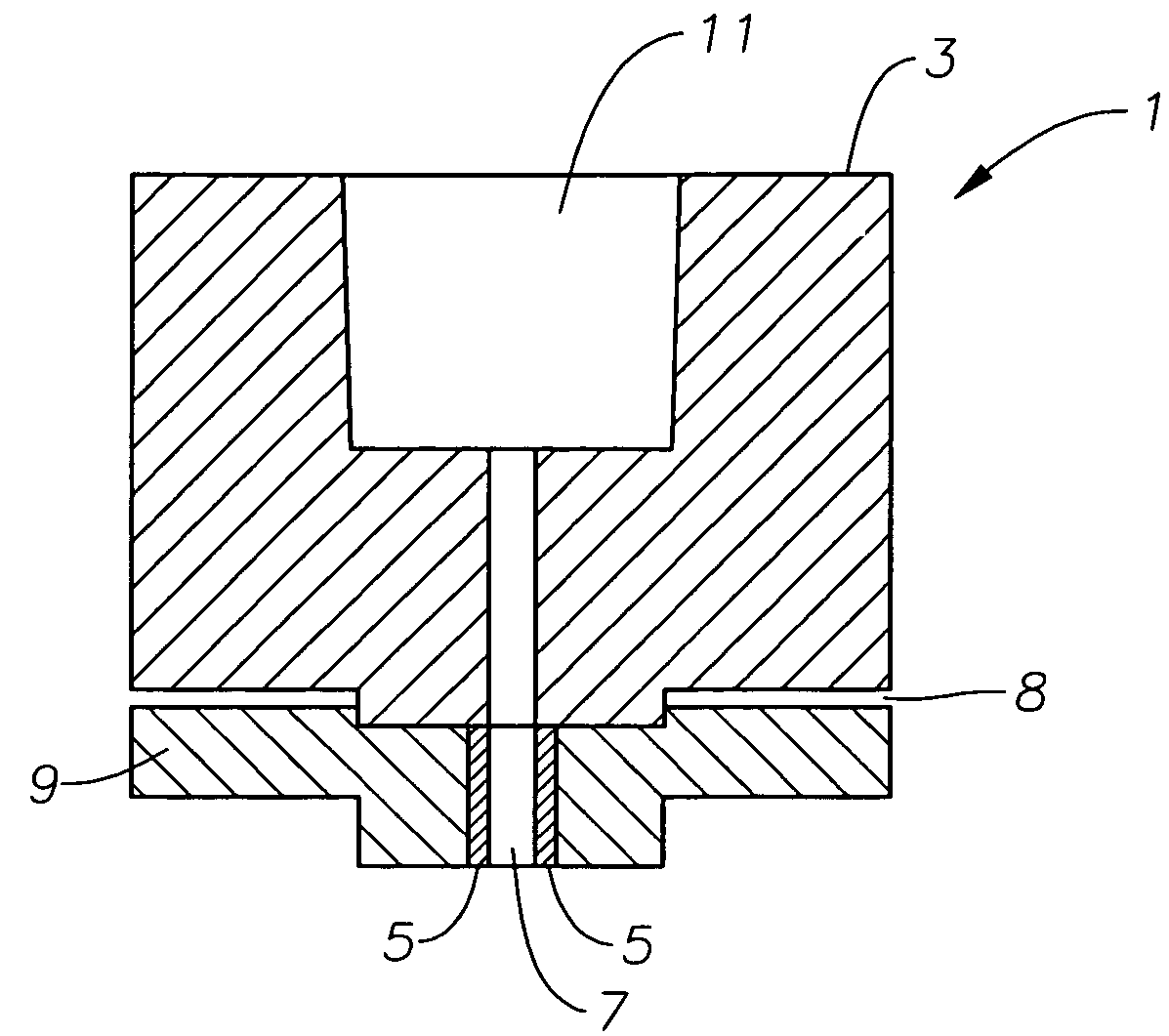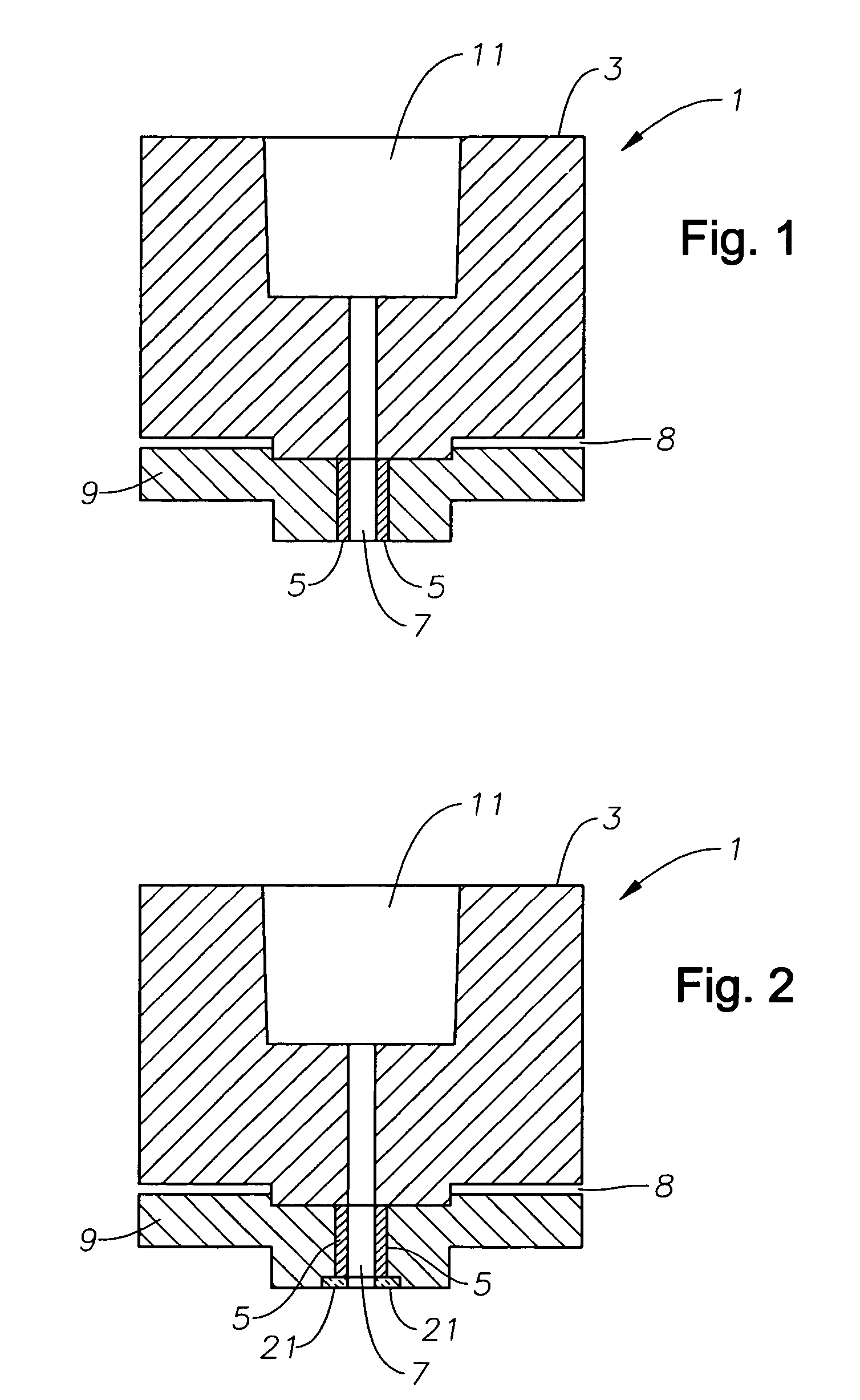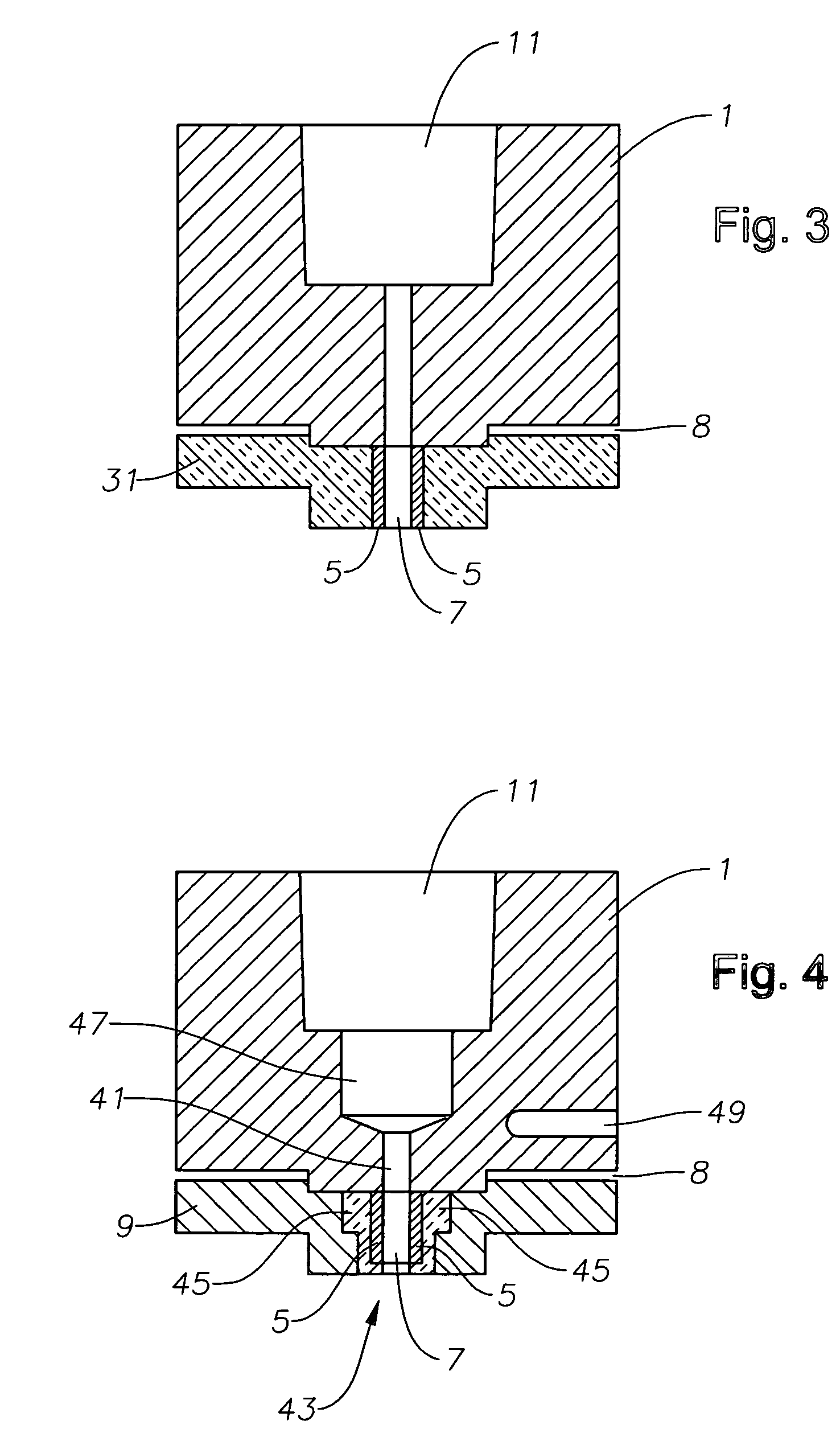Melt fracture reduction
a technology of melt fracture and reduction, which is applied in the field of melt fracture reduction, can solve the problems of poor dewatering of pellets, and inability to meet the needs of processing, and achieve the effect of reducing or eliminating the exit region melt fractur
- Summary
- Abstract
- Description
- Claims
- Application Information
AI Technical Summary
Benefits of technology
Problems solved by technology
Method used
Image
Examples
example 1
[0065]A single capillary extruder die 1 as shown in FIG. 1 was fabricated having a brass die body 3 modified so that a portion of the capillary is heated by a heating element 5 including the end zone of the capillary closest to the die opening 7 by means of die holder 9, also made of brass, which may be attached to the die with bolts (not shown). The heaters, having an inner diameter (ID) of 3.2 mm and a length of L=15.2 mm are cartridge heaters commercially available from Watlow GmbH of Germany. The cartridge heaters are concentric with the extrusion orifice pattern, and form the capillary wall proximate the capillary exit, to maintain uniform heat around the entirety of the orifice exit. Slots in the die holder 9 allow passage of electrical wire (not shown), which are hooked up to a Variac to control voltage input and thus heat. A gasket or other sealing device, such as an adhesive, may be placed between body 3 and die holder 9 at the optional gap indicated by numeral 8, also show...
example 2
[0068]The above experiment was repeated using commercially available EXCEED™ 350D60 mLLDPE, similar to the mLLDPE used in Example 1 except having no PPA. Very surprisingly, no surface irregularities are observed by visual or tactile inspection of the extrudate even at flow rates up to 28 kg / hr.
[0069]The results regarding the elimination of SMF using mLLDPE without PPA were obtained, however, only for the case where the temperature of the die exit (Tdie exit) is greater than the temperature of the melt (Tmelt) by about 30 to about 170° C.
example 3
[0070]A commercial scale underwater pelletizing extruder having a water chamber and having multiple dies modified as in Examples 1 and 2, above, was next used to simulate a commercial scale run. The results achieved were not as good as those observed in the single capillary experiments. SMF was observed visually. Without wishing to be bound by theory, it is believed that the cooling effect of the water on the die exit corners had enough of a negative impact on the superheating effect that SMF is observed at substantially lower flow rates.
PUM
| Property | Measurement | Unit |
|---|---|---|
| temperature Tmelt | aaaaa | aaaaa |
| temperature Tmelt | aaaaa | aaaaa |
| temperature | aaaaa | aaaaa |
Abstract
Description
Claims
Application Information
 Login to View More
Login to View More - R&D
- Intellectual Property
- Life Sciences
- Materials
- Tech Scout
- Unparalleled Data Quality
- Higher Quality Content
- 60% Fewer Hallucinations
Browse by: Latest US Patents, China's latest patents, Technical Efficacy Thesaurus, Application Domain, Technology Topic, Popular Technical Reports.
© 2025 PatSnap. All rights reserved.Legal|Privacy policy|Modern Slavery Act Transparency Statement|Sitemap|About US| Contact US: help@patsnap.com



